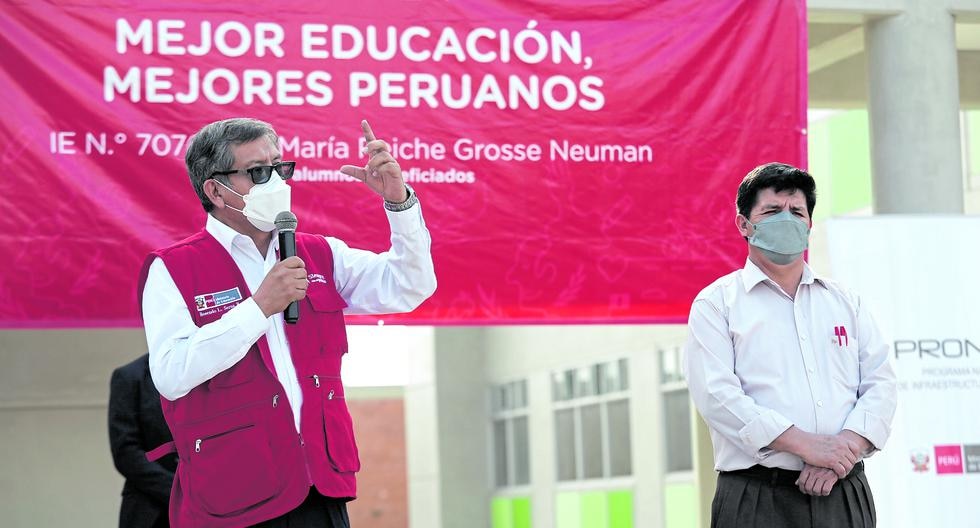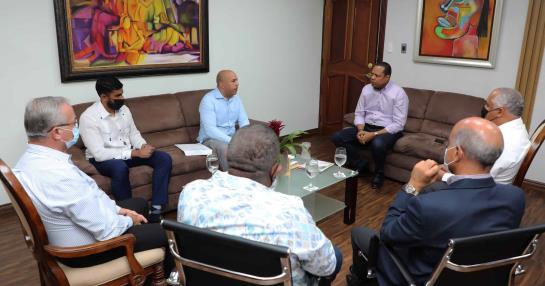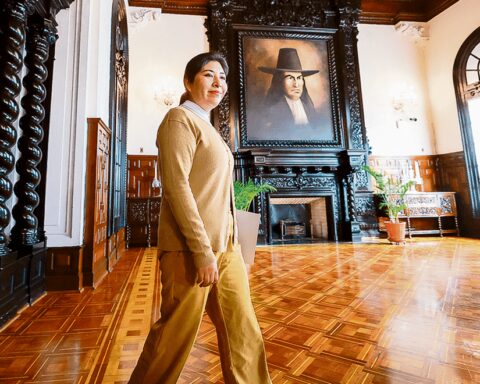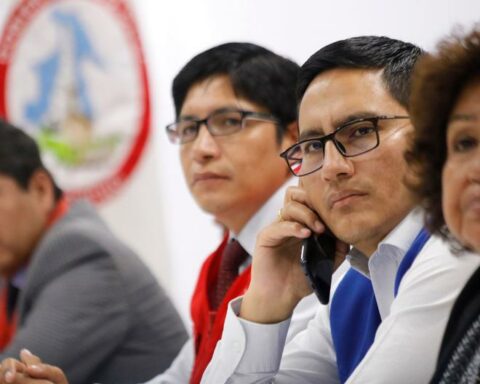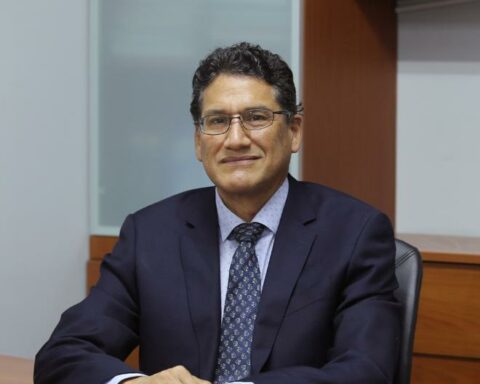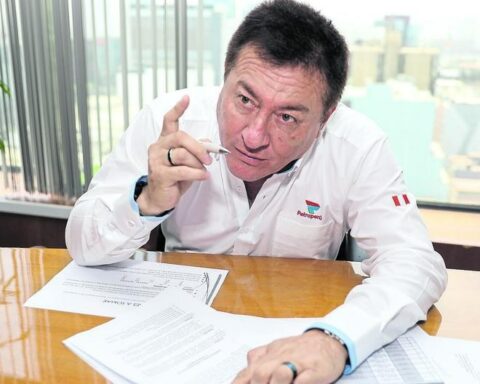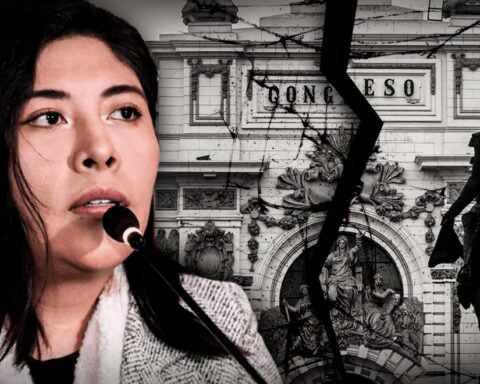He doesn’t keep his word. Despite the fact that President Pedro Castillo announced last year the return to face-to-face school classes for March of this year, the Ministry of Education (Minedu) reported yesterday that the return to the classroom will not take place in full.
Less than six weeks before the estimated date for the start of classes, the Minedu recently announced that three study modalities are planned: face-to-face, blended and distance learning. The tool created for virtual education I learn at home, and which is broadcast on television, will continue to be used in 2022.
LOOK: The challenge of returning to face-to-face classes after 2 years
Even the head of Education, Rosendo Serna, revealed yesterday that many institutions “are looking at ways to arrange spaces to enable classrooms.”
After inaugurating classrooms in a school in San Juan de Miraflores together with the president, the minister indicated that his sector is “doing everything possible” to fulfill what was promised.
The Minedu statement was released hours after international organizations, such as Unicef and UNESCO, warned the Government of the possible obstacles that could be faced at the start of classes.
they were warned
The World Bank, the United Nations Educational, Scientific and Cultural Organization (Unesco) and the United Nations Children’s Fund (Unicef) called on the Castillo government to address “urgently” the conditions that could hinder the start of classes.
International organizations highlighted that Peru was one of the first countries in the world to close schools due to the pandemic and that, despite this, it will be one of the “last to open” schools.
They also indicated that Peru is a territory where schoolchildren have “less risk” of contracting COVID-19, but they have been the most affected by the pandemic.
“During two school years they have lost learning, their mental health has been affected and they have suffered from the lack of spaces for socialization, nutrition and protection,” they asserted through a statement.
They pointed out five aspects. The first is the increase in demand, referring to the fact that approximately 350,000 students from private education migrated in 2020 and 2021 to public schools, for which more spaces, teachers and materials will be required, and the capacity expansion in said institutions.
On the other hand, they assured that 7 out of 10 public schools need better infrastructure and that although this problem cannot be solved in the short term, “it is necessary to ensure that everyone can resolve the adequacy of their spaces.” Another point was that of “school disengagement”: there are 700,000 schoolchildren who have dropped out of school or have been at risk of doing so due to the poverty generated by COVID-19. They indicated that the government must be honest with the figures and design strategies for the reincorporation of the students.
They advised avoiding giving “incomplete information” about the return to face-to-face attendance to the families of schoolchildren, since for this reason many of them are afraid to send their children to classes. They also called for the correct coordination between national and regional bodies to avoid the problems that “prevented the opening of more schools in person when the conditions to do so already existed” in 2021.
In search of knowing how the plan for returning to classes is developing, Peru21 contacted the Minedu. However, the entity reported that “we do not have spokespersons to report any issue.”
Keep in mind
- According to the Minedu, face-to-face classes in 2022 will be a maximum of 4 hours a day in urban schools. However, in December, the then Minister of Health, Hernando Cevallos, said he was unaware of this measure.
- Schools in different regions of the country, such as Arequipa, Piura, Áncash, Lambayeque, are not prepared to return to face-to-face classes. It is estimated that almost 50% of schools do not have conditions to receive students and that many will have to wait.

